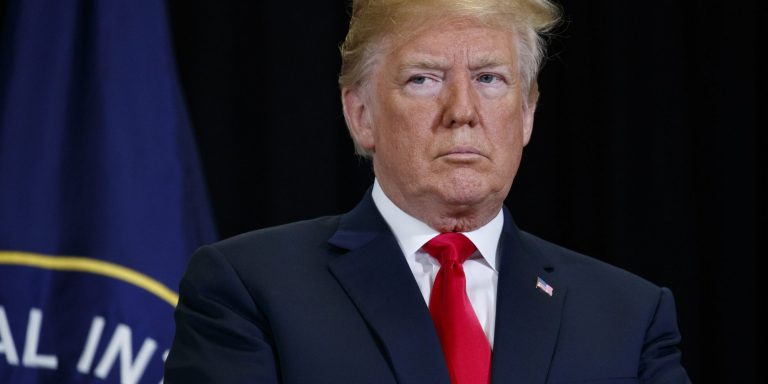INTELBRIEF
February 4, 2019
IntelBrief: The Dangerous Intelligence-Policy Divide

- On January 30, President Trump sent out tweets that were construed as pointed criticism of the intelligence community and its leadership.
- Trump described the intelligence community as ‘extremely passive and naive’ about Iran, highlighting a dangerous divide between intelligence and policy.
- Russia and other U.S. adversaries are already using influence operations to promote domestic upheaval in the lead up to the 2020 election.
- The growing divide between intelligence and policy on Iran is reminiscent of the lead up to the 2003 invasion of Iraq when politicians pressured analysts.
.
On January 29, the nation’s top intelligence chiefs testified in an open hearing before the Senate Select Committee on Intelligence. The testimony of these intelligence professionals reveals a growing disconnect between how the intelligence community (IC) assesses various threats and how the President of the United States understands them. The Director of National Intelligence (DNI) report addresses the developing Sino-Russian entente—a major threat to the U.S.-led world order and an ominous trend that will significantly impact the ability of Washington to project power abroad—as well as the threat posed by North Korea, Iran, climate change and transnational terrorism. It remains doubtful how prepared the United States is to respond to the immense challenge posed by climate change when the President consistently calls into question the science that underpins most of what we know about it. Regarding terrorism, President Trump has declared the so-called Islamic State ‘defeated,’ but few in the IC share this assessment.
Threats emanate not just from well-known U.S. adversaries, but from non-traditional areas as well, including fraying alliances, something that has been obvious to American allies from Brussels to Seoul for some time. This assessment is a clear rebuke to continued U.S. retrenchment from long-lasting alliances, which poses a clear threat to U.S. national security and introduces a degree of unpredictability to the international system. A reliable American military presence has long been a harbinger of stability in volatile regions. On North Korea, the President has touted his connection with North Korean dictator Kim Jong Un as key to the current hiatus in nuclear testing. However, the IC continues ‘to observe activity inconsistent with full denuclearization’ and more troubling, North Korea has made promises in the past, none of which the regime ever followed through on. Many in the foreign policy establishment believe that Trump has displayed a stunning level of naivete in dealing with Kim Jong Un, offering Pyongyang valuable concessions while receiving nothing tangible in return.
On the issue of Russian election meddling and its relentless disinformation campaign, the DNI assessment observed that Moscow—and others—are already actively using influence operations to promote domestic upheaval in the lead up to the 2020 election. For adversaries looking to find asymmetric methods to weaken the U.S., cyber warfare has proven attractive. Perhaps most notably, the report assesses that Iran is not in violation of the terms of the multi-lateral Joint Comprehensive Plan of Action (JCPOA), a treaty that the U.S. pulled out of and which the European Union and other signatories are attempting to salvage. But the administration has consistently taken a hard line on Iran and the National Security Advisor, John Bolton, is a well-known ‘Iran hawk’ who has publicly agitated for a military option to enact regime change against the mullahs in Tehran, despite little appetite for another war in the Middle East among the American public and most of the national security community.
There is a troubling and dangerous situation where President Trump reacts with anger when provided with information that runs contrary to his ‘gut instincts.’ On January 30, he tweeted that the nation's top intelligence officials—because their analysis did not match the stance he has assumed in public—were ‘extremely passive and naive’ about Iran. One concern is that challenges such as Iran and North Korea are more intractable than the administration realizes and that tensions between the White House and the IC will continue to fester, negatively impacting not just morale, but potentially leading the administration to make serious errors in terms of formulating national security policy. The growing divide between intelligence and policy on Iran, in particular, is eerily reminiscent of a similar divide between the IC and the Bush administration in the lead up to the 2003 invasion of Iraq, one of the most detrimental foreign policy blunders in American history.
.
For tailored research and analysis, please contact: info@thesoufancenter.org
[video width="960" height="540" mp4="https://thesoufancenter.org/wp-content/uploads/2019/02/IB-0204.mp4" poster="https://thesoufancenter.org/wp-content/uploads/2019/02/AP_18141593211866-1-e1549234367160.jpg"][/video]